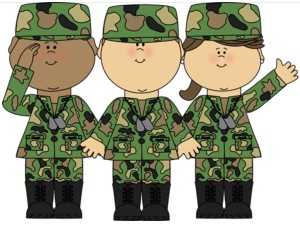March 2015
Colorectal cancer is cancer of the colon or rectum. It’s as common in women as it is in men. This year, over 136,830 people will be diagnosed with colorectal cancer and an estimated 50,310 will die of the disease. With certain types of screening, this cancer can be prevented by removing polyps (grape-like growths on the wall of the intestine) before they become cancerous. Several screening tests detect colorectal cancer early, when it can be more easily and successfully treated.
It’s March, National Nutrition Month, when the Academy of Nutrition and Dietetics spotlights the important role of healthful eating and physical activity to control weight and prevent chronic disease. But these aren’t snap-your-fingers, easy-to-achieve goals to execute in fast-paced life.
3. National Women and Girls HIV/AIDS Awareness Day – March 10, 2015
National Women and Girls HIV/AIDS Awareness Day (NWGHAAD) is an annual, nationwide observance that sheds light on the impact of HIV/AIDS on women and girls. Every year on March 10, and throughout the month of March, federal, national, and community organizations come together to offer support and hope, reduce stigma, share information, and empower women and girls to learn the importance of HIV/AIDS prevention, care, and treatment. This year marks the 10th observance of National Women and Girls HIV/AIDS Awareness Day.
4. Traumatic Brain Injury Awareness Month
There are three levels of traumatic brain injuries: mild, moderate and severe. Don’t let these names fool you. A mild TBI is just as serious as a moderate or severe one. The names refer to loss of consciousness and mental alteration as a result of the trauma. In my case, I have no idea if I became unconscious, I lost all since of time, where I was and who I was so, I was classified as “mild”. But like I said, don’t let the name fool you. The resulting damage can be the same for all three — a TBI does not discriminate.
A TBI changes you. Literally and figuratively. My personality is different. My energy levels and sleep patterns are foreign to me. The confused woman in the kitchen staring at the oven is someone I am just now starting to understand. The woman who has to write a Post-it note for every single task on her to-do list is no longer the multi-tasker she once was. The woman who used to type at 100 words per minute with zero mistakes now has to take her time and correct many keystroke errors as she goes because her brain gets confused with letters. The woman who had a great job that helped others is no longer there and has become the person who needs help. I am lucky though I have a husband who is there for me. He is very understanding because I am not the person who knew before this happened to me. Every day is trying for me and some days trying to find the right word can set me off.
4. Women’s History Month
Women’s History Month had its origins as a national celebration in 1981 when Congress passed Pub. L. 97-28 which authorized and requested the President to proclaim the week beginning March 7, 1982 as “Women’s History Week.” Throughout the next five years, Congress continued to pass joint resolutions designating a week in March as “Women’s History Week.” In 1987 after being petitioned by the National Women’s History Project, Congress passed Pub. L. 100-9 which designated the month of March 1987 as “Women’s History Month.” Between 1988 and 1994, Congress passed additional resolutions requesting and authorizing the President to proclaim March of each year as Women’s History Month. Since 1995, Presidents Clinton, Bush and Obama have issued a series of annual proclamations designating the month of March as “Women’s History Month.”
TBI can be classified based on severity, mechanism (closed or penetrating head injury), or other features (e.g., occurring in a specific location or over a widespread area). Head injury usually refers to TBI, but is a broader category because it can involve damage to structures other than the brain, such as the scalp and skull.
TBI is a major cause of death and disability worldwide, especially in children and young adults. Males sustain traumatic brain injuries more frequently than do females. Causes include falls, vehicle accidents, and violence. Prevention measures include use of technology to protect those suffering from automobile accidents, such as seat belts and sports or motorcycle helmets, as well as efforts to reduce the number of automobile accidents, such as safety education programs and enforcement of traffic laws.














